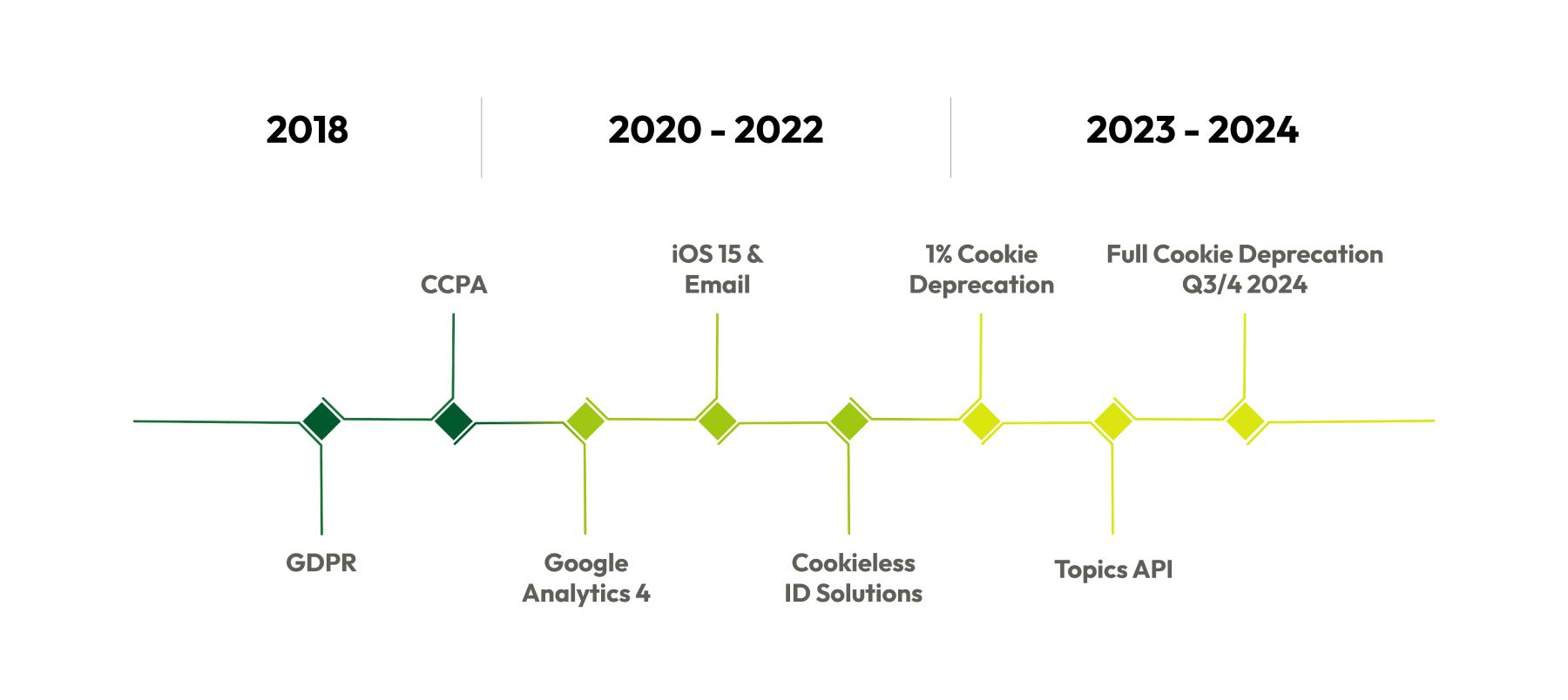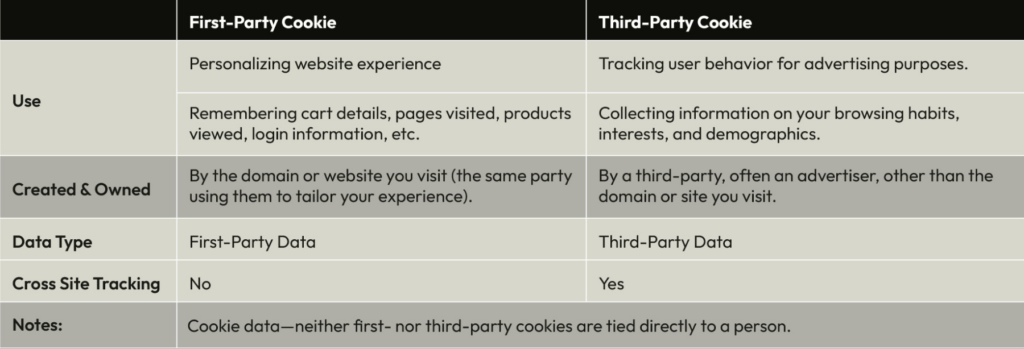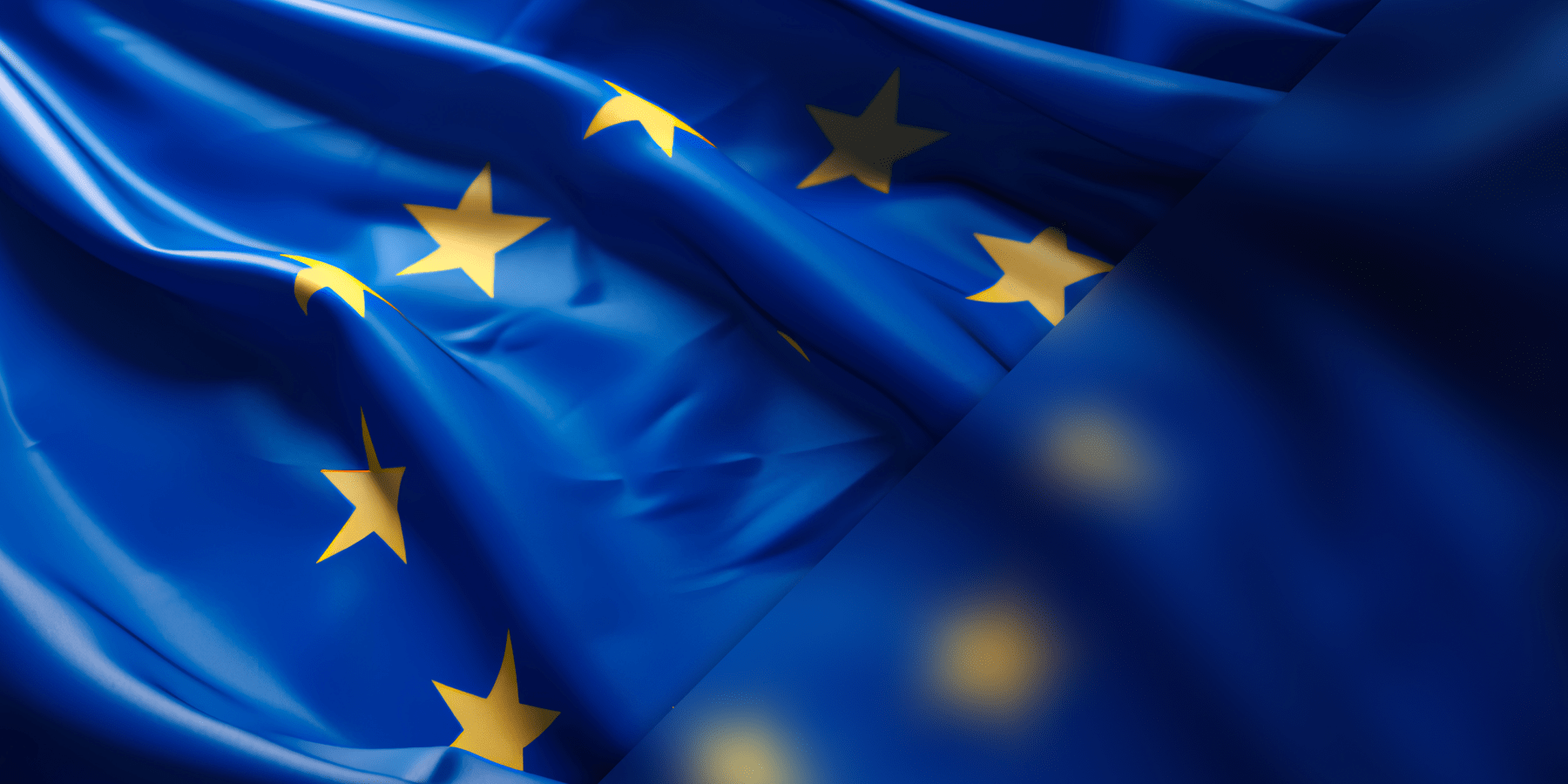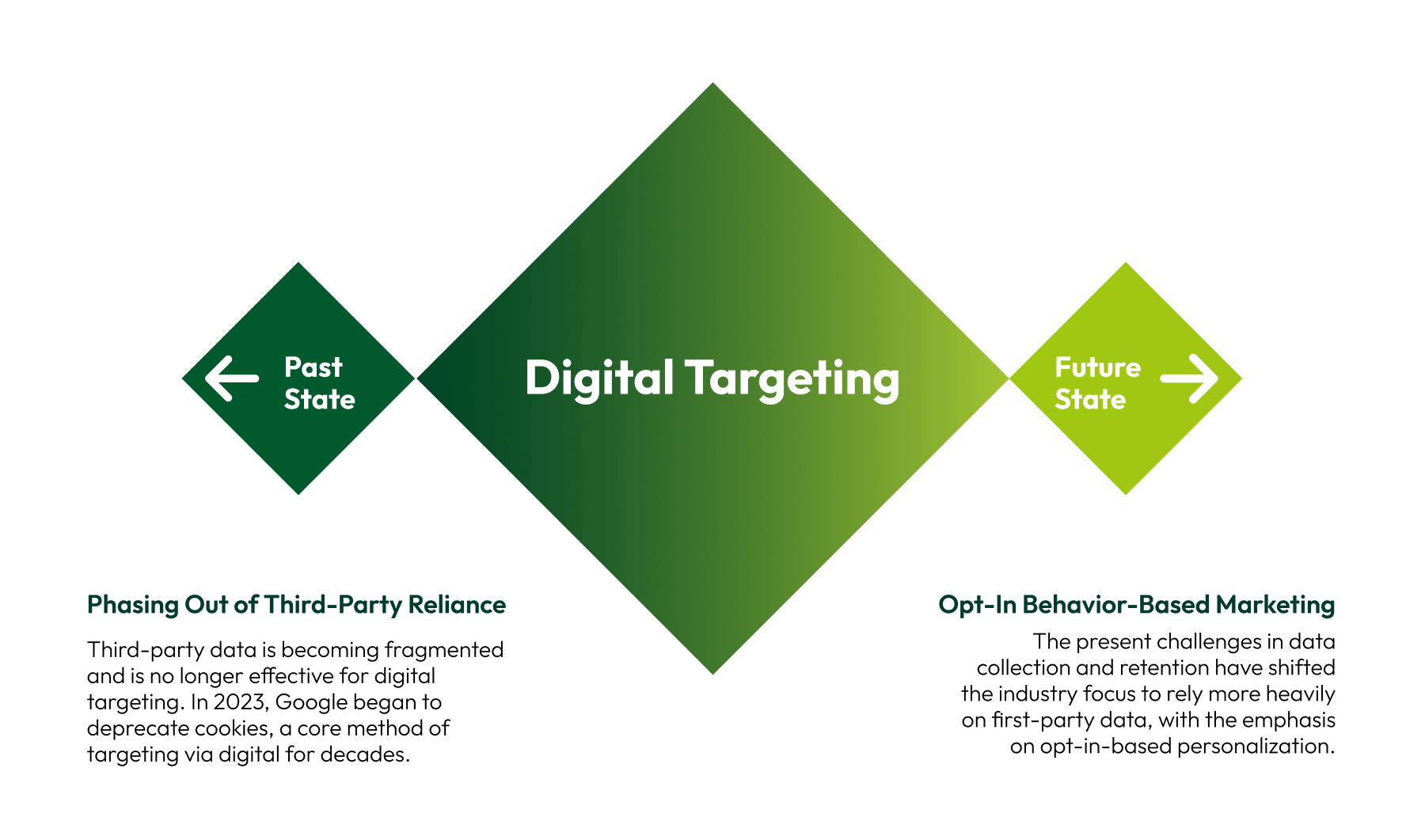Adapt to the Phasing Out of Third-Party Cookies

News of third-party cookie deprecation has been looming since the announcement from Google in early 2020. The initial dispatch stated that the cookie deprecation process would be rolled out within the next two years. Although Firefox and Safari had already phased out the third-party cookie, Google’s post positioned its planned changes over a longer period so it could work with advertisers to preserve its online advertising business.
Initial testing started for 1% of Chrome users in Q1 2024. The process has taken longer than expected, but Google is set to fully deprecate third-party cookies within the next year, marking a seismic shift in the digital marketing landscape.

UPDATE: Google recently announced the decision to delay cookie deprecation until 2025, which buys advertisers a bit more time to adjust and optimize your strategy, but the change is still approaching quickly.
At Agital, we see every challenge as an opportunity. To help you adapt to the rapidly approaching cookieless future, we’ll explore what cookies are, how they work, the impact the change will have, and how large tech companies are adapting. Then, we’ll cover how companies can strategically prepare themselves to mitigate negative effects and develop new approaches for tracking and reporting.
Keep in mind, the deprecation of cookies will only negatively impact your marketing if you don’t prepare for it. We offer current solutions to help you prepare, adapt, and thrive in this brave new world.
Cookies are small pieces of data that a website stores on your computer to remember information about you. There are various types of cookies that serve different purposes and are set or owned by different entities.
First-party cookies are set by the website you are visiting. They are used to enhance your experience on that site by remembering things such as login information, preferences, and what you had in your shopping cart.
Third-party cookies, on the other hand, are put on a website by someone other than the site you are visiting (the “third-party”) and are typically used for tracking and advertising purposes. The data that third-party cookies collect can be more extensive, including demographic information (age, gender, interests), device, location, language preferences, and cross-site tracking.
Imagine you are a party planner. First-party cookies are like sticky notes you give to your guests when they arrive, asking them to write down their preferences. These notes help you remember who likes what music, food, or games, so you can tailor your party to their tastes. Similarly, a website uses first-party cookies to remember your preferences and customize your experience accordingly.
Third-party cookies, on the other hand, are like a group of friends who attend your party and take notes on everyone’s activities, interests, and conversations. They then share their notes with you and other party planners (advertisers) who want to know more about your guests. This helps other planners tailor future parties (advertising campaigns) to be more likely to appeal to the guests based on their interests.


Over the past two decades, data availability has become ubiquitous. Subsequently, there has been a concerted effort to leverage user data in meaningful ways to create personalized experiences for consumers.
As marketers have become more precise, efficient, and effective in using this data, consumer concerns about how their data is utilized have escalated. Consumers’ push toward data privacy has garnered attention from lawmakers on a global scale, with the EU leading the charge by enacting significant changes to protect consumers.
In 2018, the General Data Protection Regulation (GDPR) went into effect, which governs how the personal data of individuals in the EU may be processed and transferred. Setting a high standard for data protection and increasing the scrutiny of consumers and lawmakers, the GDPR had a noticeable impact on how the rest of the world, including the US, views data privacy.
The US has begun to follow the EU’s lead with California’s development of the (CCPA) California Consumer Privacy Act and proposed privacy legislation at the federal level. These legislative initiatives have led Google to make significant changes to its data collection and privacy policies, aligning them more closely with the stringent regulations.
The cookieless future will introduce challenges for marketers in both targeting and measurement, two broad and encompassing swaths of the marketing landscape. Targeting tactics that utilize third-party cookies as their means for understanding consumers include contextual, demographic, behavioral, interest based, geographical, device, and cross-site behavior tracking. This has been the default prescription for targeting in the digital marketing realm since its inception.

In addition to the focus on targeting and media buying, third-party cookies also impact how we can measure the success of online advertising campaigns. Conversion tracking, including purchases, signups, enrollments, and any desired action that results from marketing activities allows for a third-party cookie to track a user’s journey from the ad to the conversion point. This cookie allows advertisers to attribute a conversion back to the specific ad or marketing channel that drove it.
Conversion tracking helps advertisers measure the effectiveness of campaigns, optimize targeting, and calculate return on investment (ROI).
We can turn to technology leaders to understand the direction of industry shifts and landscape changes. So, what exactly are the major players up to, and what can we learn from them?
In March of 2020, Apple announced its plan to deprecate third-party cookies in its Safari browser. This announcement was part of Apple’s broader privacy initiatives aimed at enhancing privacy and limiting tracking across its ecosystem. Coinciding with this change in September of 2020, they released privacy feature App Tracking Transparency (ATT) as part of their iOS 14 updates. ATT requires apps to get the user’s permission before tracking their data across other companies’ apps or websites for advertising purposes or for sharing their data.
Marketers saw these changes largely affect targeting and reporting capabilities within social platforms like Meta. Because Apple itself is largely unaffected by changes in privacy’s impact on advertising, the company has led the initiative in making changes quicker than others. According to Apple’s June 2023 announcement, they are doing away with URL tracking parameters from links accessed in its Mail and Messages apps, as well as Safari Private Browsing.
Since the cookie deprecation announcement in 2020, Meta has invested in its own advertising ecosystem by developing and promoting its own first-party data tools and solutions for advertisers, which has limited targeting capabilities within the platform.
On the measurement and tracking front, Meta began to roll out Conversions API in April of 2021. The Conversions API is designed to create a connection between an advertiser’s marketing data (such as website events, app events, business messaging events, and offline conversions) from an advertiser’s server, website platform, mobile app, or CRM to the Meta systems. In short, Meta is utilizing their first-party data (like first-party cookies or CRM data) to track conversions, rather than relying on third-party cookies.
One of the most intriguing companies to examine is Google, given its position at the intersection of privacy concerns and advertising. In late 2019, Google Chrome made up more than 56% of the web browser market. It also accounts for more than half of all global web traffic. Chrome is the only web browser affected by third-party cookie deprecation because of the advertising platforms it runs, such as Google Ads, Google Analytics, and Google Marketing Platform.
To thwart some advertisers’ concerns, Google has developed solutions for both advertisers and publishers that have delayed the deprecation of third-party cookies in Chrome. Privacy Sandbox is a Google initiative to develop technologies that protect users’ privacy online while still giving companies tools for data collection.
Some technologies that have come from the Privacy Sandbox that utilize first-part data collection include:
Advancements from generative AI technology can fill in the data gaps we will see after cookie deprecation. AI tools will have the power to supplement strategies that once utilized cookies for user data collection with predicative insights into user behavior. Because AI requires large sets of proprietary first-party data, tech giants like Amazon and Google that have ecosystems of robust first-party user data will likely invest in their advertising capabilities, impacting how we traffic media in the future.
With technology advancing at a rapid pace, it is as important as ever to partner with an agency that understands how the landscape is changing now—and in the future—to help prepare and craft solutions that can help your business adapt.
Since the announcement was made that cookies would be going away, the marketing community has pushed toward adopting strategies that grow first-party data to feed into CRM and CDP databases. Robust first-party data collection will be increasingly important to make up for the data lost from third-party cookies, but your process needs to be strategically aligned with your business goals to be effective. Collect first-party data in a meaningful way that builds customer loyalty while remaining focused on your user experience.
Choose innovative partners, including your agency partner and the vendors and technologies they utilize. Are vendors and demand-side partners (DSPs) available that offer solutions to your gaps in targeting and data collection?
With 1% of data being deprecated already, you’re likely already experiencing performance changes from conversion tracking optimizations. In-platform solutions like enhanced conversions, conversion API, and Google Tag Manager Server-Side Tracking can help remedy any issues using first-party data collection. But these solutions are still in testing phases and can be both technically difficult to implement and costly. It is important to weigh your options and consult with experts on implementation.
Diversifying your marketing dollars across platforms and beyond digital media will help mitigate risk to your performance and allow you to explore your media mix.
Implement data standards and practices that prioritize customer privacy to help build trust with your customers. Nurturing trust will encourage your consumers to view your company as a safe place to share their data. Ensure that your website meets compliance standards, including accessibility, security, and privacy data collection standards.
The cookieless future will compel marketers to change our approach and become more creative, reinforcing fundamental marketing principles. Change promotes growth, new ideas, and fresh perspectives. How can we broaden our perspective and delve deeper into our marketing approach?
While cookie deprecation limits the data we can collect about our consumers, we can shift our focus to finding new ways to understand their sentiment, feelings, and reasons for choosing a particular business and remaining loyal. At Agital, our frameworks provide custom insights into your audiences to foster loyalty and longevity.
A strategic measurement strategy is your blueprint for success and your compass in navigating uncharted marketing territory. It defines how your marketing objectives support broader business goals, providing a consolidated view of your tech stack, how it measures success, and how each piece functions as part of a larger whole.
We utilize both quantitative and qualitative data in our audience research to understand psychological and demographic insights that motivate user behavior. From those insights, we develop behavioral personas, which serve as a lens through which we evaluate all marketing strategies.
In today’s environment, it’s not enough to just understand your audiences’ actions and behaviors. Truly impactful marketing comes from the ability to meet customers where they are and deliver relevant solutions to potential problems at every turn. In creating customer experience maps for your personas, we provide a guidebook on how your brand should interact with certain types of customers throughout your marketing and sales cycle across different channels.
Collecting first-party data is a crucial first step, but you also need to leverage that data in ways that are meaningful for your customers and help you achieve your business goals. Customer Data Platforms (CDPs) will become an increasingly valuable resource, allowing you to build robust customer profiles, a foundational tool for personalized marketing efforts like email marketing drip campaigns with opt-in strategies that build trust and community around your brand.
With the massive changes already taking place and quickly approaching on the horizon, performance, reporting, and targeting will fluctuate dramatically in the coming year. The right partner will help you adapt with agility and roll with the punches.
While there is no crystal ball to tell us exactly how cookie deprecation will impact your business, Agital offers deep expertise, informed guidance, and holistic partnership to navigate the uncertainties that await us all. We would be happy to help your business identify the right set of solutions for you in the cookieless future.
